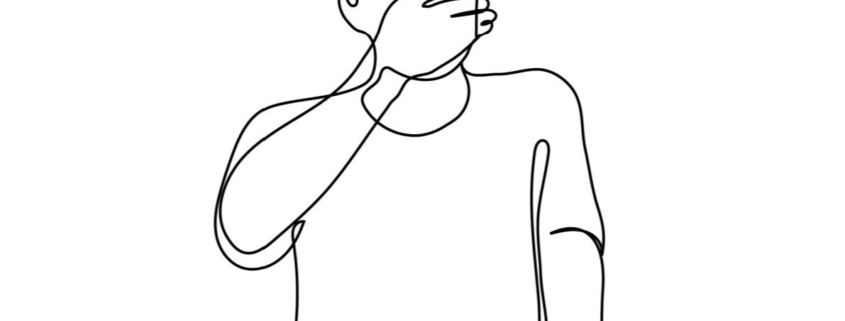Breaking News.
This morning, we awoke to breaking news:
- New details from yesterday’s missile strike.
- An historic lunar mission has begun.
- And a presidential bid has been announced.
News is breaking—everywhere. And unless you completely unplug (which clearly you haven’t if you’re reading this), you can access those “breaking news” headlines every second of every day. Information is power, we’re told, so we watch our feeds. We refresh the page. We track the headlines. And then, we feel the effects. According to a study in the journal Health Communication, “the obsessive urge to keep up with the news can lead to stress, anxiety, and worsening physical health.” More than 73% of people say they experienced mental health issues “quite a bit” or “very much,” and 61% reported their physical health suffered because of constantly reading the news.News, it seems, is not just breaking. It’s also breaking us. Is it time we acknowledge “breaking news” for what it is? Not a noun, but a verb? Not a reaction—but a call to action? Yesterday, I spent the day at the opening of Howard University’s new Center for Journalism and Democracy, where I had the opportunity to consider the role that news media plays in our lives, and the role that we can play in shaping our news media’s future. The reality is: we need news and information. We need to fully understand problems if we want to move toward solutions, and we need journalists who can hold power accountable if we are to have a true and honest working democracy. To most—even those swept up in the headlines—media is seen as part of the problem. But media can also be the tool we need to address the breaking nature of our democracy—if we embrace its true purpose. How we take in the news media—and how we communicate out what we learn—matters. Here are a few more insights sticking with me from yesterday’s Summit that may give you something other than the headlines to think about—maybe even something to discuss more deeply at an upcoming dinner table:
- Democracy Didn’t Win, the Democrats Did. When it comes to the mid-term election results, regardless of the party you align with, “democracy didn’t win last week, as much as the headlines reported it as such—democrats won. There’s an important difference,” as Sherrilyn Ifill noted. Go back to this 2020 CNN column by historian Nicole Hemmer to understand the difference and to see how often history repeats itself.
- Pro-Democracy Requires a Single Journalistic Standard. Democracy isn’t about picking sides between parties, says NYU’s Jay Rosen. But it does require that we have a single standard for reporting on democracy. Here’s how he put it to journalists: If you run a “mainstream” newsroom and someone asks you whether democracy is at greater threat from Republicans or Democrats, the key to avoiding a both-sides meltdown is to start like this: “We hold everyone to the same standards. If our reporting shows you’re putting democracy at risk, you can expect that to become a theme in our coverage.” Without a single standard, all parties, and all people are at risk.
- Where we Get our Information Matters. Propaganda, fake news, sensational headlines. They’re all around us in mainstream media. Consider what you might instead find in local journalism, non-profit journalism, and community-based journalism, which often operate by different standards, and different values. Once you sort through what media is trying to sell you, and what it’s trying to tell you, then you might find much more value in the news media, too.
Bottom line: News is breaking, but it doesn’t need to break you. So, rather than be a savvy observer of the headlines, be an informed participant. Seek out newsrooms that are going deeper on the issues, newsrooms that are providing historical context, newsrooms that are presenting stories from multiple perspectives, and newsrooms that are sharing knowledge over clickbait. Looking for a few more resources?
- Take a read of any article from our friends at Prism, an independent and nonprofit news outlet led by journalists of color. I highly suggest this series on gerrymandering.
- Listen, watch or read any one of the investigative reports on Reveal, a public interest nonprofit newsroom that believes in better-informed conversations and community-driven solutions.
- Or, join me in checking out this new documentary, No Time to Fail, to get a better understanding of America’s election workforce.
This is week 45 of the Finding The Words column, a series published every Wednesday that delivers a dose of communication insights direct to your inbox. If you like what you read, we hope you’ll subscribe to ensure you receive this each week.





 Check out our new
Check out our new